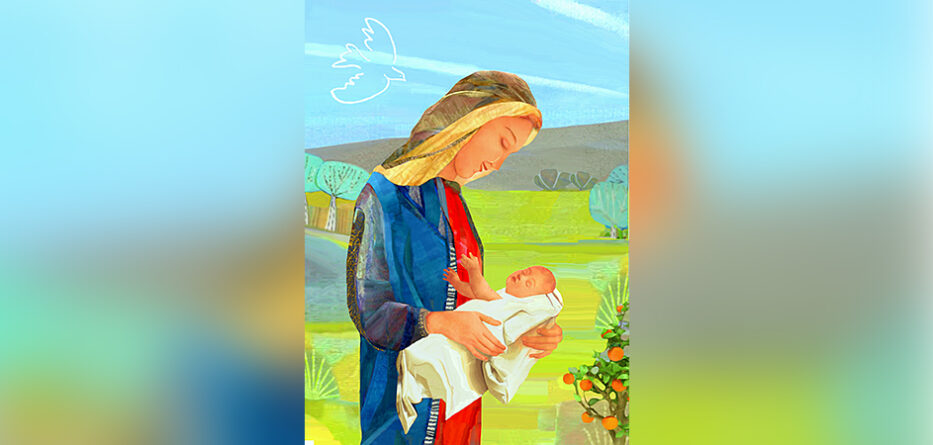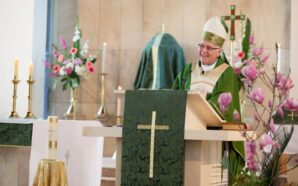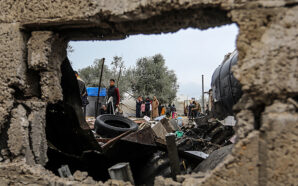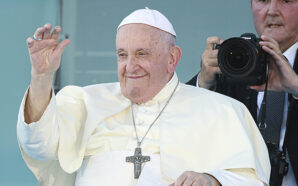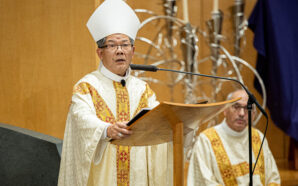And the Word became flesh and dwelt among us. (John 1:14)
In this famous passage from John’s Gospel, verse 14 in Greek literally says that “the Word became flesh and pitched his tent among us”. God tented with the Israelites in the wilderness and in Christ, God pitches His tent with us. God is with us, up close, in person.
And so, each Christmas we remember that Jesus, our Saviour, came to live in a typical Middle Eastern village called Nazareth, that was home to only a couple of hundred ‘country’ people.
He did not decide to brandish His power but spent most of His time with the powerless and disenfranchised.
And what is more, he was born, like all of us, to a mother, Mary of Nazareth. A human woman is the mother of God, and God is the son of a human mother!
In the Incarnation, we are given a very human image of a poor woman and her husband with a newborn child. No wonder the Madonna is by far the most painted image in Western civilisation. It heals all mothers and all children of mothers, if we can only look deeply and softly.
That healing power of God becoming flesh extends even further and ever outwards. If God became flesh in Jesus, then it is in the world, the physical, the animal, in the natural elements, in human sexuality that God must be found. This is how Christianity was supposed to change everything.
Most of us just kept looking up, when God in Jesus had, in fact, come down – for us to embrace tenderly.
In his essay ‘On Fairy-stories’, J.R.R. Tolkien says that the Gospel both begins and ends with joy – the joy of Christ’s birth and the joy of the Resurrection – and it embraces all that is human between those two events.
The Incarnation contains the whole Gospel, from the wood of the manger to the wood of the Cross, the condescension of Jesus’ birth as a vulnerable child and the power of the Resurrection and the hope of His return in glory.
Christmas celebrates God’s free choice to share the lot of humanity, to enter into the experience of human life with all its vulnerability, its risks, its poverty and its mortality.
The One, who is Joy, shares and makes possible the joy of human life. Christian joy is not dependent on outer circumstances of prosperity or even good health and long life, but is an inner reality that shines forth. Christ is in our midst. We are not alone.
Our Church then finds its truest home at the manger, a scene fraught with human messiness and hardly engaging at first glance.
Yet this is the dawn of the Church: transcendence indwelling the most ordinary of human events; a birth; a love-struck God going to great ends to get in on life with us in the most intimate way possible; a family driven to a shabby stable by the demand of emerging life; a newborn’s wail; mystery in the night sky; wise people looking beyond their wealth, power, and knowledge for something more.
This is our joy. There is indeed “something more” and it is found in a baby, in utter vulnerability. God pitches His tent with us.
May we rediscover this Christ Child and the new life He alone can give in this holy season.
Br Mark O’Connor FMS is the Vicar for Communications in the Diocese of Parramatta and the Editor of Catholic Outlook.




